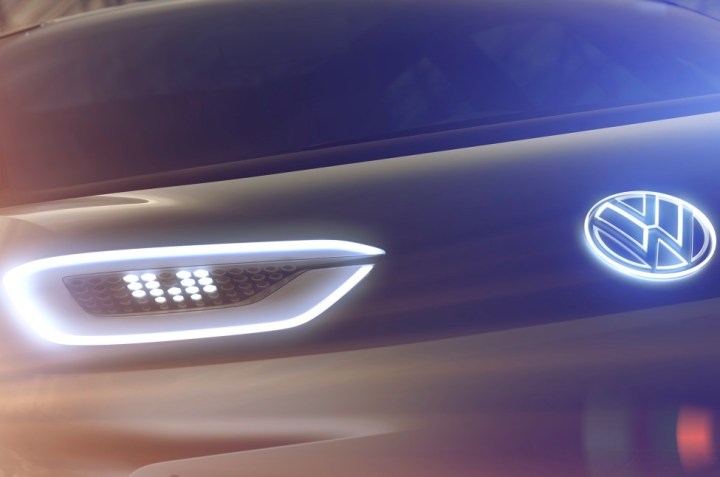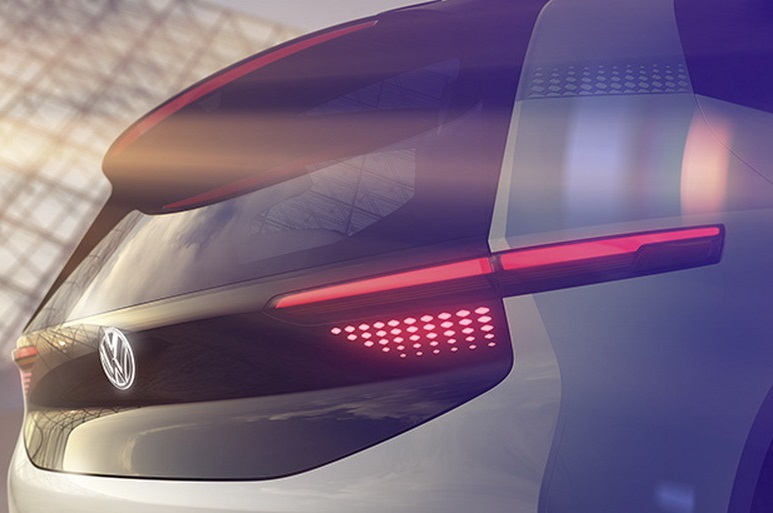
The yet-unnamed concept is instantly recognizable as a member of the Volkswagen lineup thanks to familiar styling cues such as sharp headlights and a thin grille, but it takes the company’s design language in a more futuristic direction. The emblem on the front fascia boasts LED lighting, and the door mirrors have been replaced with high-definition cameras. The new look will inspired every electric Volkswagen to help differentiate them from models powered by an internal combustion engine.
Volkswagen recently revealed that its next show car is about the same size as a Golf, yet it offers roughly as much interior space as a Passat thanks to clever packaging. Notably, an electric motor takes up considerably less space than a three- or four-cylinder engine.
We know that the concept will ride on a new modular electric platform called MEB that was inaugurated earlier this year by the retro-inspired Budd-e concept. Designed specifically to underpin electric vehicles, the platform features a totally flat battery pack that occupies almost all the space between the front and rear axle.
Additional technical specifications won’t be announced until the concept is presented. However, a slide from a presentation reveals that cars built on the MEB platform will be capable of driving anywhere between 248 and 372 miles on a single charge. That 248 figure is likely what we can expect from smaller vehicles, while 372 will only be achieved by bigger cars such as full-size sedans and crossovers capable of carrying a larger battery pack.
Read more: Volkswagen’s retro Beetle ups its styling game for 2017
Volkswagen’s next concept car will make its official debut during the Paris Auto Show in just a few short weeks. And while it’s billed as simply a design study, the Wolfsburg, Germany-based firm openly admits that the styling and the tech features will trickle down to a production model that’s set to launch either in 2018 or in 2019.
Editors' Recommendations
- Volkswagen ID.GTI concept is another icon reimagined as an EV
- Volkswagen’s electric ID.Life concept car doubles as a gaming console
- Audi GrandSphere concept shows how autonomy opens new design avenues
- Here’s how Volkswagen plans to electrify America’s most popular car segment
- Volkswagen’s celebrated Golf GTI returns with more power and new tech






